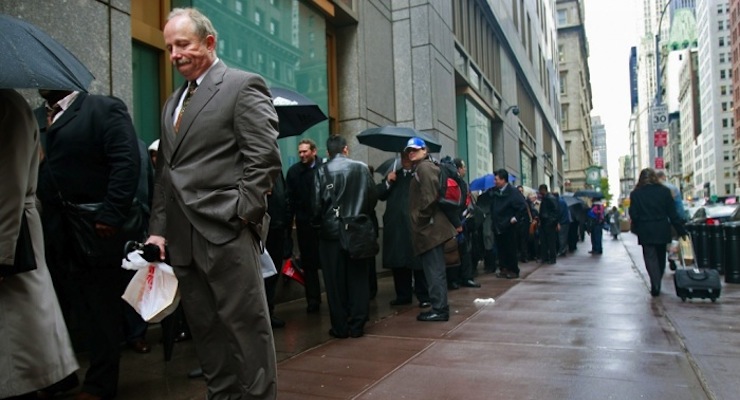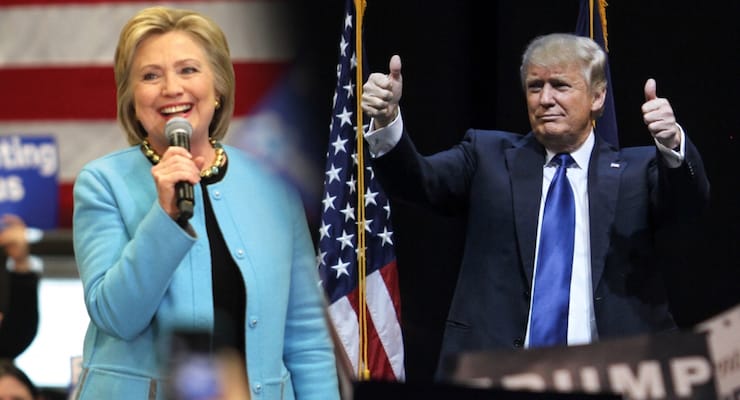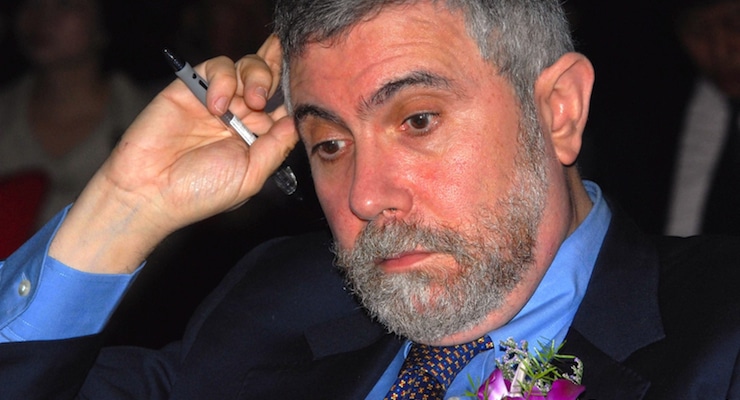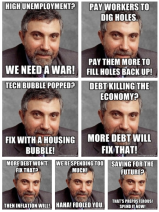Why Hillary Clinton is Trailing Donald Trump in General Election Polls
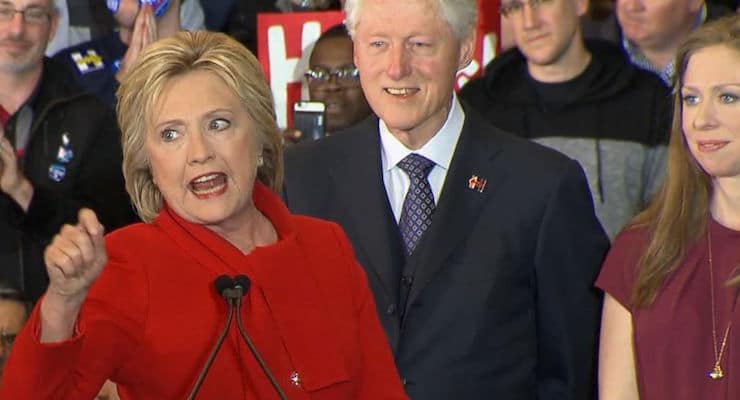
Hillary Clinton speaks on the evening of the Iowa Democratic caucus, Feb. 1, 2016. (Photo: AP)
In response to Donald Trump pulling ahead of Hillary Clinton in the average of general election polls, Democrats have pointed to her prolongued primary battle as the cause. That’s simply just not true. Hillary Clinton is not trailing Donald Trump in national polls because she is still locked in a primary battle with Bernie Sanders, as some “experts” claim.
The aggregate head-to-head polling shows both Mrs. Clinton and Mr. Trump largely consolidating their respective bases, despite her weakness among younger voters. Mrs. Clinton is trailing Mr. Trump for two primary reasons, which we foresaw months ago when his own bruising primary was in fact damaging his standing.
The White Vote
As I’ve explained in detail, thoroughly and repeatedly, we too often discuss the Republican share of minority voters while ignoring the Democrats’ margins with white voters. Being the party of white people, while not sustainable in the long-term, is actually not a bad thing in a country still white by majority.
In 2012, when Barack Obama was reelected, he won handily in the Electoral College. But a rather small shift in the popular vote can have a relatively large impact on Electoral Votes. He lost the white vote against Gov. Mitt Romney, but still won 39% nationwide. This allowed him to carry largely white battleground states, such as New Hampshire and Iowa, while holding more diverse states with still-large percentages of white voters–including Ohio, Virginia, Florida, Colorado and Pennsylvania.
But any drop in that national number will have a disproportionate impact in these competitive states, an argument I made last cycle that was ignored until it was proven right. In 2014, the average share of the white vote for Democratic Senate candidates in the battleground states was 36%. They lost in Iowa, Colorado and nearly lost in Virginia. They narrowly held the seat in New Hampshire, but the popular incumbent senator was from a long line of big name state Democrats and she went up against another state’s one-term senator labeled a carpetbagger.
By the way, for those of you tempted to delude yourselves, turnout was not the reason for the Republican wave in 2014. In other words, Democrats still need to win roughly (and at least) 38% of the white vote to ensure victory in the battlegrounds.
In the ABC News/Washington Post Poll, Mrs. Clinton only polls 33% among white voters, far too little to win the general election. That number is actually slightly lower in the better rated Fox Poll–32%–and 36% in the NBC News/Wall Street Journal Poll, the single worst major news outlet poll this cycle. Unsurprisingly, the latter is only one of two polls in the PPD average still showing her leading (3-points), which is frankly not statistically likely given her share of the white vote.
If that gap holds, Donald Trump will be the next president, plain and simple.
The Gender Gap
As is the case with the minority vote, we are often preached to about the importance of the women’s vote and ignore the gender gap among men. While most Republicans carry men and lose women, Mr. Trump carries men by a much larger margin than he loses women. In other words, he does well enough among women and clobbers Mrs. Clinton with men.
If that gap holds, Donald Trump will be the next president, plain and simple.
And neither has anything to do with Bernie Sanders.
Final Thought
Many of the same people who underestimated Donald Trump are now pairing with Democrats in their denial. One of the most frequently cited arguments relies upon the Democrat’s “Blue Wall” advantage in the Electoral College. For the record, in American political history there are no such things as Blue or Red Walls. There are only ever-changing and ever-evolving political coalitions.
They’re an illusion. Sixty years ago, Vermont and California were reliably Republican and the South was reliably Democratic. Just ask Kevin P. Philips and Warren Weaver, the former being someone who once argued the Emerging Republican Majority and the latter a journalist/expert/pundit who furthered it.
Hillary Clinton is not trailing Donald Trump

